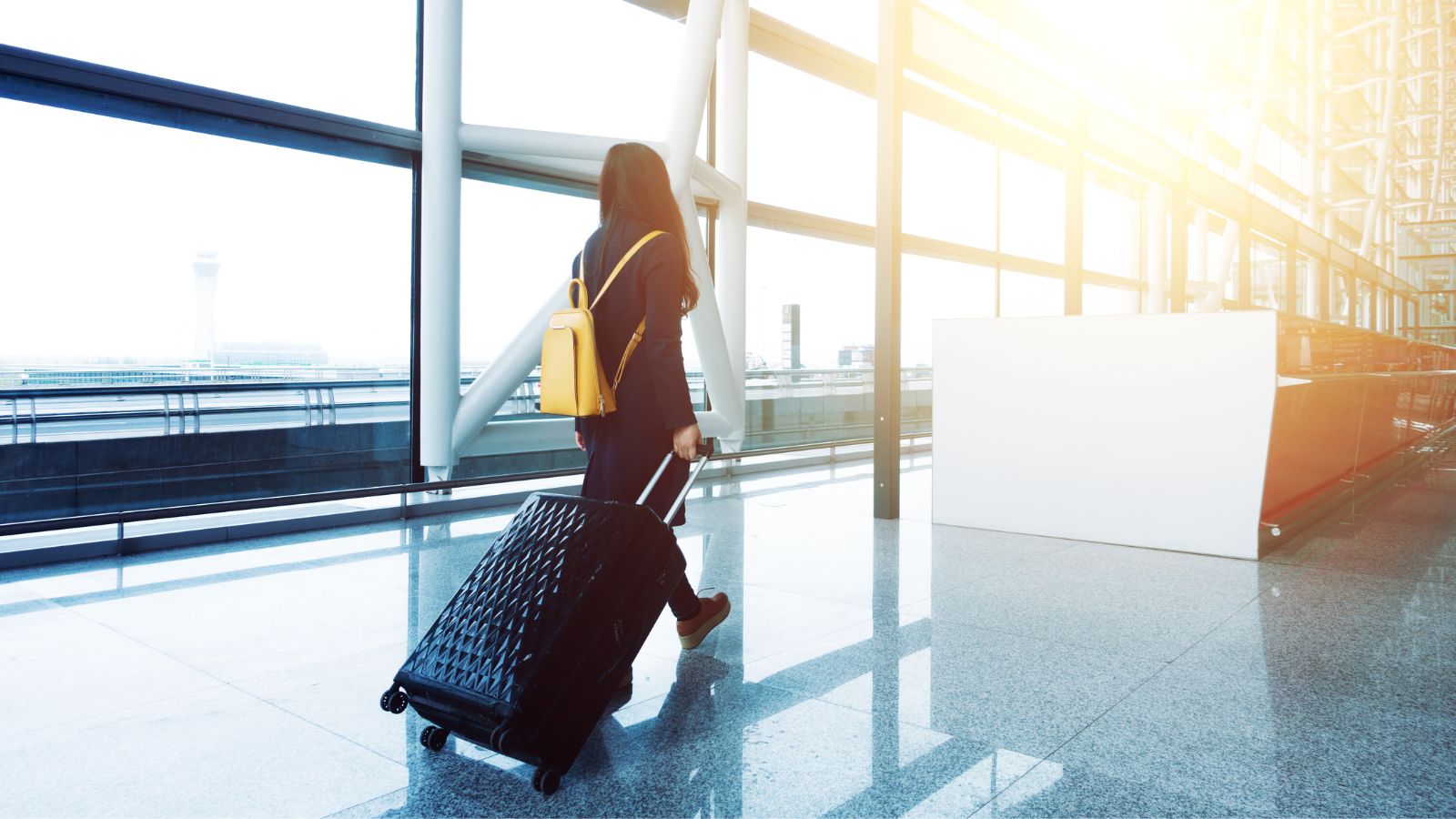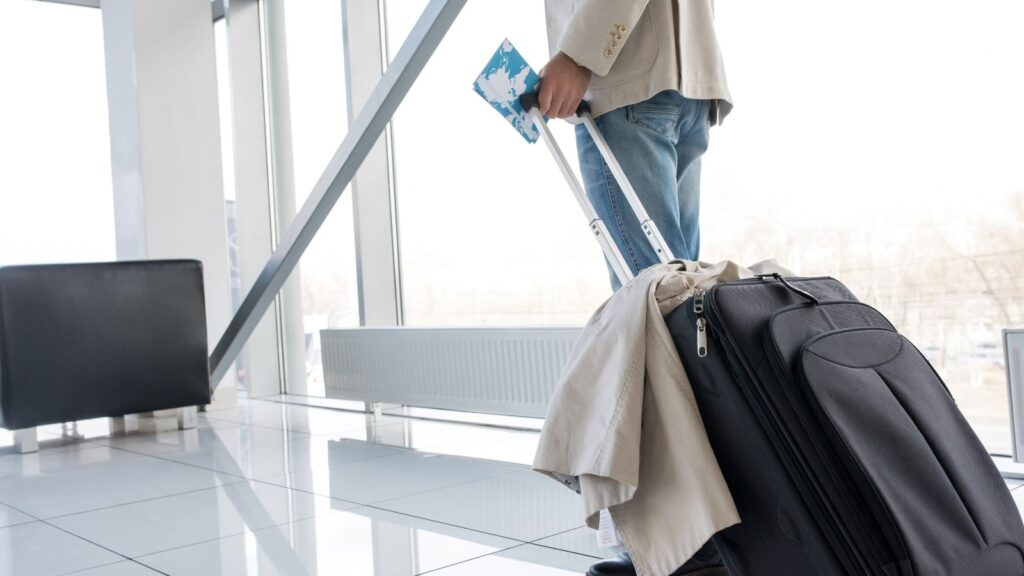If you’ve ever landed in a new city excited to explore but felt uncomfortably backed up for days, you’re not alone. Travel constipation is a frustratingly common problem. Whether you’re on a long-haul flight, switching time zones, eating unfamiliar foods, or just out of your usual rhythm, your digestive system often doesn’t get the memo to keep moving. The result? That sluggish, bloated, “why haven’t I gone in three days?” feeling that puts a real damper on the trip.
Let’s be clear, constipation while traveling isn’t just an inconvenience. It can mess with your energy, your mood, your appetite, and even your immune response. And while the topic might be slightly taboo, it’s something worth taking seriously if you want to feel your best away from home. Understanding why it happens, and more importantly, what actually helps, can make your next journey a whole lot smoother.
Why Travel Constipation Happens In The First Place
The gut is sensitive to change. One of its key jobs is to maintain rhythms, specifically, the migrating motor complex (MMC), which is the wave-like muscle contraction that moves food and waste through the intestines. That rhythm is closely tied to your circadian cycle, meal timing, hydration status, and even stress levels. Traveling—especially flying—tends to throw all of that off.
Sleep is disrupted, meals aren’t eaten at the usual times (or consist of less-than-gut-friendly airport fare), hydration is often forgotten, and movement is limited. Add in a little travel anxiety, unfamiliar toilets, or a subconscious discomfort with public bathrooms, and it’s no wonder your bowels go quiet. Even the simple act of sitting for too long, such as during a flight or road trip, reduces blood flow and mechanical stimulation to the intestines, slowing everything down.
Some people are more prone to it than others. If you already tend to be on the constipated side at home, you’re more likely to experience delays when traveling. Others who are highly sensitive to routine changes or who have conditions like IBS-C may notice symptoms ramp up during even short trips.

What’s Actually Going On In Your Gut
Constipation isn’t just about not going, it’s about the body slowing down a coordinated process of digestion, absorption, and elimination. The colon becomes sluggish, water is reabsorbed into the body from the stool, and it becomes harder and more difficult to pass. This leads to that classic feeling of fullness, bloating, and discomfort.
One overlooked factor is the shift in your gut microbiome. Your gut bacteria are deeply connected to how your bowels move. A stable, diverse microbiome helps regulate motility, produce short-chain fatty acids (SCFAs) that nourish the gut lining, and support serotonin production—much of which is made in the gut and plays a role in peristalsis. When your routine changes, your microbiota can shift too. Even a short trip can alter the composition of your gut flora, especially if you’re changing time zones, eating differently, or under stress.
How To Actually Get Things Moving Again
Most people reach for quick fixes—laxatives, caffeine overload, or fiber bars—when they’re already uncomfortable. And while those may provide temporary relief, they don’t address the underlying reasons your gut slowed down in the first place. The real key is prevention and gentle support.
First, hydration is essential. Dehydration is a huge factor in travel constipation. Airplane cabins are notoriously dry, and the body loses moisture more rapidly than usual. When your colon doesn’t have enough water, it absorbs more from the waste passing through, making stools harder and slower to move. Sipping water regularly—not just when you feel thirsty—helps maintain intestinal movement and stool consistency.
Second, movement matters. Even light walking stimulates peristalsis and encourages bowel activity. This doesn’t have to mean a full workout at the hotel gym. A walk after meals, taking the stairs instead of the elevator, or stretching at the airport can help. Think of physical movement as a signal to your digestive system: “We’re awake, and things are flowing.”
Equally important is the role of beneficial bacteria. Probiotics for constipation can offer significant support when you’re away from home. Specific strains like Bifidobacterium lactis, Lactobacillus rhamnosus, and Bifidobacterium longum help modulate gut motility, reduce inflammation, and restore microbial balance—especially important if your usual diet is disrupted. Taking a travel-friendly probiotic before and during your trip can prepare your system in advance and buffer some of the changes your gut will experience.
Dietary strategies are another layer. Aim for consistency with meals when possible. Fiber can help, but it’s a double-edged sword. Introducing too much insoluble fiber too quickly—especially if you’re not used to it—can actually worsen bloating or cause more discomfort. A mix of soluble fiber (like oats, psyllium, or chia seeds) with adequate hydration tends to be gentler and more effective. Avoid relying on fiber supplements alone without increasing water, as this can worsen symptoms.
And don’t overlook stress. Travel is exciting, but it can also be mentally and emotionally taxing. Even subconscious tension can tighten the abdominal muscles and delay digestive flow. Incorporating small stress-reduction techniques—deep breathing, stretching, even a few minutes of mindfulness or meditation—can have a surprisingly large impact on gut function.

When You Return Home
Post-travel constipation can linger if not addressed early. Some people return home and find their system hasn’t quite reset, leading to ongoing irregularity or discomfort. This is where continuing probiotic support, eating whole foods, and reestablishing regular movement and hydration routines can help recalibrate the microbiome and digestive rhythm.
If constipation becomes a consistent issue during travel, it’s worth preparing in advance. This doesn’t mean bringing half your kitchen or a suitcase of supplements, but having a plan—hydration, movement, fiber, and microbiome support—can make a world of difference.
Digestive regularity isn’t just about comfort—it affects your energy, mood, skin, and even immune response. When your gut is stuck, everything else slows down. So next time you’re planning a trip, remember to pack smart—not just your shoes and charger, but a plan for your digestion too.
Your gut likes routine, but it’s also resilient. With the right preparation and support, you can travel far without leaving your digestive health behind.




